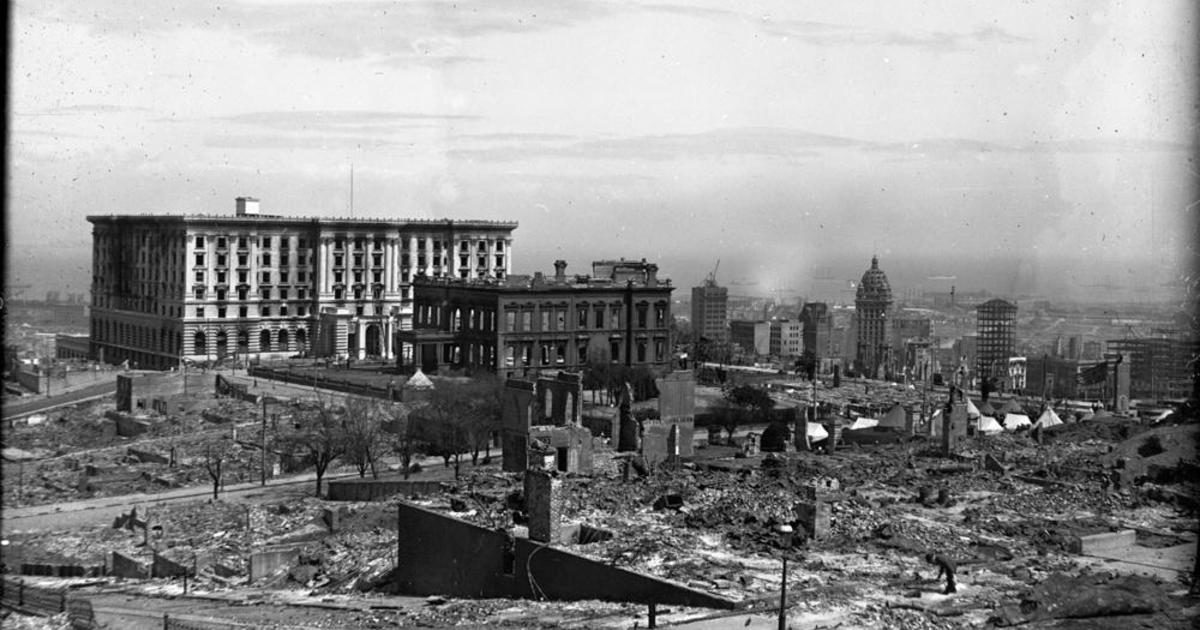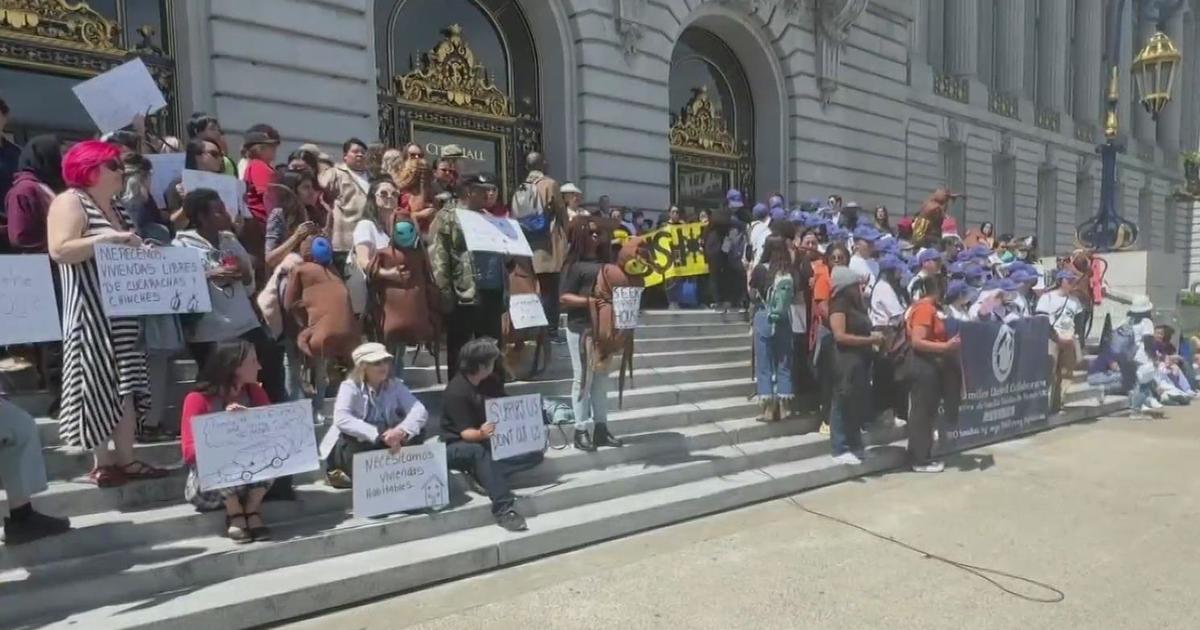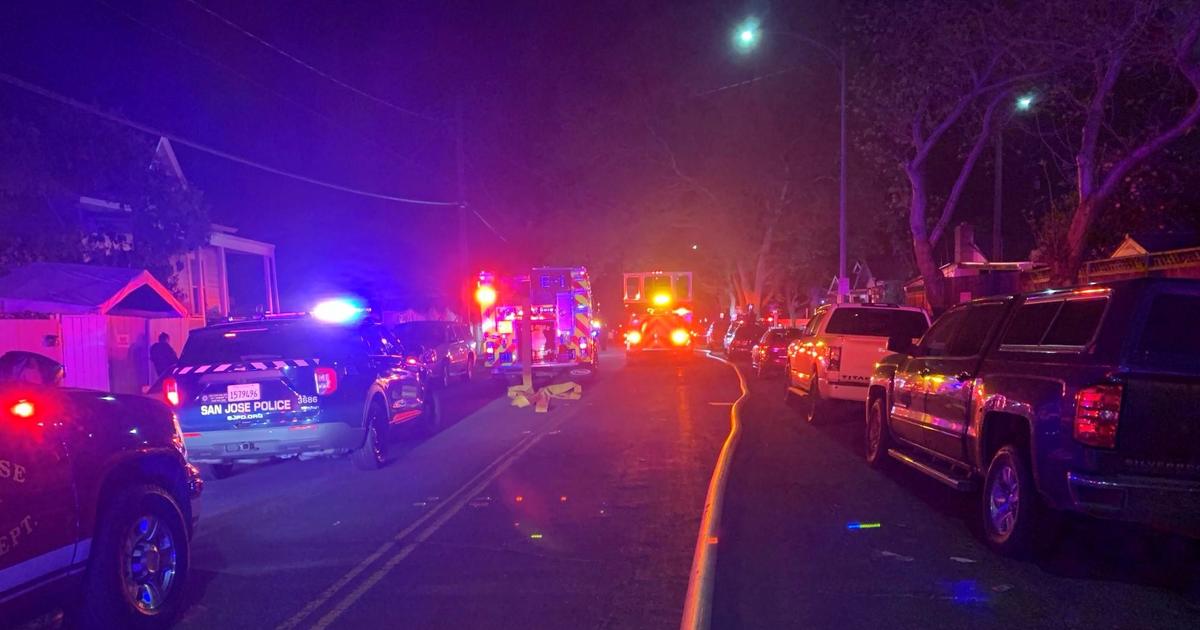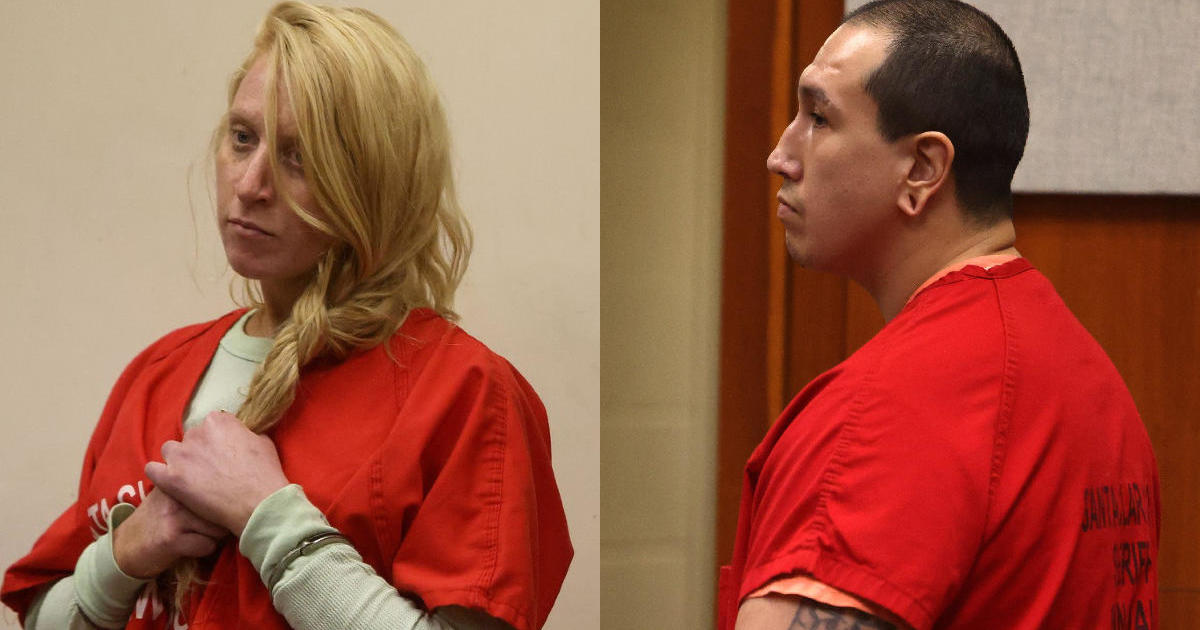San Jose Leaders Propose Sweeping Public Safety Cuts To Close Gaping Budget Hole
SAN JOSE (CBS SF) -- With San Jose's income streams being ravaged by the coronavirus pandemic, city leaders are considering shaving more than $10 million off public safety in next year's budget.
The cuts would affect the hiring of police officers and firefighters, reduce access to community services, and delay the expansion of a long-awaited fire station in the city's Willow Glen neighborhood.
With the city's finances in tatters and a $71.6 million hole in the budget for the fiscal year beginning July 1, San Jose leaders are proposing sweeping cuts to city functions as they face a grim economic future. But public safety personnel said the proposed cuts would bring the city back to a time when crime rates were high, 9-1-1 response times increased, and residents' quality of life deteriorated.
There are now more police officers on the streets of San Jose than there have been in at least the last five years when a staffing crisis reduced the force to just 855 officers.
The overall head count is up to 1,150 officers with 950 street ready. The proposed cuts could freeze hiring and result in overall staffing losses again because retiring officers would not be replaced.
"Making the wrong decisions in this budget crisis could bring us back to those days when we couldn't answer 911 calls in a sufficient way," said Paul Kelly, President of the San Jose Police Officers Association.
"Unfortunately, it is a perfect storm," said City Council member Johnny Khamis.
The shortfall could worsen by $40 to $50 million, mostly because of the dramatic drop in sales tax and other revenue generated by businesses which were forced to close.
"A lot of money comes in from sales tax and property tax and business fees. As long as the business fees aren't there, we're going to have reduced budgets," Councilmember Khamis said.
The biggest cuts to the police department include $350,000 in one-time funding, $600,000 from the Downtown Foot Patrol program, which would deploy a handful of officers in high-crime areas of downtown, $1.4 million from the Community Service Officer program and a whopping $7.2 million from the city's Sworn Hire Ahead program, which prioritizes hiring additional police officers before future vacancies. Police leaders planned to hire 20 officers in the next year, but those funds were also decimated.
In the aftermath of the pandemic, Kelly added, more officers are needed to patrol the streets as the likelihood of petty crimes, such as burglaries and car break-ins, as well as more serious offenses, is expected to rise.
"For calls which include assaults, missing children and other serious crimes, it takes over 20 minutes for an officer to arrive," Kelly said. "We need to preserve police officers - not cut them."
The San Jose Fire Department faces losing the addition of at least four firefighters, $205,000 in funds, and crucial dollars to expand staffing at the long-sought Fire Station 37 to provide services to the Willow Glen neighborhood, which has been exposed to risk because it never had its own station.
The potential reductions in services worry fire officials, who say public dollars and resources to fund their operations are already spread thin despite the need being high. While San Jose is home to more than 1 million residents, the fire department consists of just 711 firefighters among 33 fire stations.
"Clearly, the geographic area that Station 37 would serve is identified as a top priority as being underserved, relative to resources in the area," Fire Chief Robert Sapien said at a budget meeting last week. "We would have to do something to make sure we got resources in. No matter what, the service needs are definitely still a priority."
Public health orders to slow the spread of COVID-19 have walloped cities across the Bay Area, and San Jose is no different. Brought on by the pandemic that's shuttered government services, stalled construction projects and forced most businesses to close their doors, the city's devastating economic forecast shows revenues will likely drop by 9 percent compared with 2018-2019.
"The necessary shelter-in-place restrictions to slow the virus's spread has severely impacted day-to-day economic activity," City Manager Dave Sykes said. "The longest economic expansion in U.S. history has abruptly ended, and the recession we knew was eventually coming is now here."
City leaders reported staggering losses across main revenue streams - sales and business tax income, city events, tourism and construction - extending far beyond the projected $65 million shortfall they reported just one month ago. As a result, the proposed $4.1 billion budget falls 11.2 percent, or $523.6 million, short of this year's budget.
"We are looking at this as a beginning of a recession and a long recovery," Sykes said. "We don't see the economy rebounding quickly, and we need to be able to address these things in the long haul."
To close the gap, Sykes' proposed budget includes major cutbacks across vital services as well as furloughs to 1,000 employees. While Sykes does not anticipate layoffs because of the city's high employee vacancy rate, 103 vacant positions will be eliminated, reducing city staffing to 6,544 full-time positions.
The city plans on trimming $3.9 million from several airport operations, $1.5 million from the library budget and $1.3 million from parks and landscape watering. Projects from the City Council were also cut, including dollars for a gun violence-prevention study, a one-time fund of $100,000 for the city's equity framework strategy, and money for traffic safety and street improvements.
"These have been really tough times, and these are times when in every department, very difficult decisions are being made up and down the organization, and the pain is being felt throughout," Mayor Sam Liccardo said. "For the next two or three years, we know it's going to be a mighty challenge."
But some city leaders say many of these cuts can be avoided.
Against the advice of the city's financial director at a City Council meeting, lawmakers last week unanimously approved exploring the use of a $2 billion investment portfolio to avoid cutbacks - an idea pushed by the San Jose Police Officers Association.
Council members Sylvia Arenas, Sergio Jimenez and Maya Esparza proposed the idea of loaning a portion of those investments to the city's general fund as a short-term solution to backfill the city's deficits.
"I'm interested in looking at any source of revenue to help backfill some of the shortfalls we have in the budget," Jimenez said in an interview. "We need to maintain and enhance the level of public safety personnel. Whether it be fire or police, we need to find the money to plug those holes."
But some city officials said the city would eventually need to pay back the money it borrowed, which could be a problem down the line.
"We as an administration do not want to cut services," Finance Director Julia Cooper said. "But the inability to identify a payback mechanism...(and) potentially it could have a negative impact on our city credit ratings - those are two major concerns."
Still, Kelly said the City Council should explore all options rather than sitting on unused funds. To balance next year's budget, Sykes said he plans to use existing reserves, one-time funds and other emergency revenue streams.
City leaders will discuss alternative funding source options in early June. The City Council will hold public hearings June 15 before adopting the 2020-21 budget June 16.
Len Ramirez contributed to this story.



